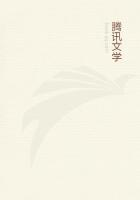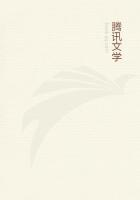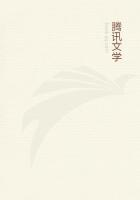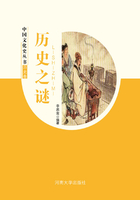Gallery yonder, there sat a _Fourth Estate_ more important far than they all. It is not a figure of speech, or a witty saying; it is a literal fact,--very momentous to us in these times. Literature is our Parliament too. Printing, which comes necessarily out of Writing, I say often, is equivalent to Democracy: invent Writing, Democracy is inevitable. Writing brings Printing; brings universal everyday extempore Printing, as we see at present. Whoever can speak, speaking now to the whole nation, becomes a power, a branch of government, with inalienable weight in law-******, in all acts of authority. It matters not what rank he has, what revenues or garnitures. the requisite thing is, that he have a tongue which others will listen to; this and nothing more is requisite. The nation is governed by all that has tongue in the nation: Democracy is virtually _there_. Add only, that whatsoever power exists will have itself, by and by, organized;working secretly under bandages, obscurations, obstructions, it will never rest till it get to work free, unencumbered, visible to all. Democracy virtually extant will insist on becoming palpably extant.--On all sides, are we not driven to the conclusion that, of the things which man can do or make here below, by far the most momentous, wonderful and worthy are the things we call Books! Those poor bits of rag-paper with black ink on them;--from the Daily Newspaper to the sacred Hebrew BOOK, what have they not done, what are they not doing!--For indeed, whatever be the outward form of the thing (bits of paper, as we say, and black ink), is it not verily, at bottom, the highest act of man's faculty that produces a Book? It is the _Thought_ of man; the true thaumaturgic virtue; by which man works all things whatsoever. All that he does, and brings to pass, is the vesture of a Thought. This London City, with all its houses, palaces, steam-engines, cathedrals, and huge immeasurable traffic and tumult, what is it but a Thought, but millions of Thoughts made into One;--a huge immeasurable Spirit of a THOUGHT, embodied in brick, in iron, smoke, dust, Palaces, Parliaments, Hackney Coaches, Katherine Docks, and the rest of it!
Not a brick was made but some man had to _think_ of the ****** of that brick.--The thing we called "bits of paper with traces of black ink," is the _purest_ embodiment a Thought of man can have. No wonder it is, in all ways, the activest and noblest.
All this, of the importance and supreme importance of the Man of Letters in modern Society, and how the Press is to such a degree superseding the Pulpit, the Senate, the _Senatus Academicus_ and much else, has been admitted for a good while; and recognized often enough, in late times, with a sort of sentimental triumph and wonderment. It seems to me, the Sentimental by and by will have to give place to the Practical. If Men of Letters _are_ so incalculably influential, actually performing such work for us from age to age, and even from day to day, then I think we may conclude that Men of Letters will not always wander like unrecognized unregulated Ishmaelites among us! Whatsoever thing, as I said above, has virtual unnoticed power will cast off its wrappages, bandages, and step forth one day with palpably articulated, universally visible power. That one man wear the clothes, and take the wages, of a function which is done by quite another: there can be no profit in this; this is not right, it is wrong. And yet, alas, the _******_ of it right,--what a business, for long times to come! Sure enough, this that we call Organization of the Literary Guild is still a great way off, encumbered with all manner of complexities.
If you asked me what were the best possible organization for the Men of Letters in modern society; the arrangement of furtherance and regulation, grounded the most accurately on the actual facts of their position and of the world's position,--I should beg to say that the problem far exceeded my faculty! It is not one man's faculty; it is that of many successive men turned earnestly upon it, that will bring out even an approximate solution.
What the best arrangement were, none of us could say. But if you ask, Which is the worst? I answer: This which we now have, that Chaos should sit umpire in it; this is the worst. To the best, or any good one, there is yet a long way.
One remark I must not omit, That royal or parliamentary grants of money are by no means the chief thing wanted! To give our Men of Letters stipends, endowments and all furtherance of cash, will do little towards the business. On the whole, one is weary of hearing about the omnipotence of money. I will say rather that, for a genuine man, it is no evil to be poor; that there ought to be Literary Men poor,--to show whether they are genuine or not! Mendicant Orders, bodies of good men doomed to beg, were instituted in the Christian Church; a most natural and even necessary development of the spirit of Christianity. It was itself founded on Poverty, on Sorrow, Contradiction, Crucifixion, every species of worldly Distress and Degradation. We may say, that he who has not known those things, and learned from them the priceless lessons they have to teach, has missed a good opportunity of schooling. To beg, and go barefoot, in coarse woollen cloak with a rope round your loins, and be despised of all the world, was no beautiful business;--nor an honorable one in any eye, till the nobleness of those who did so had made it honored of some!















